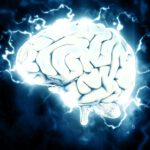The European Organization for Nuclear Research (CERN) shut down in Large Hadron Collider back in February of 2013 for an overhaul and upgrade. CERN announced earlier this week that the LHC was on track for a restart in March 2015.
More on the LHC
The LHC. located just outside of Geneva, Switzerland, is the biggest particle collider in the world. The device played a key part in the discovery of the long-elusive Higgs boson, also known as the God particle.
Nuclear physicists have their fingers crossed that the mega-atom smasher will make more important discoveries and help solve the big mysteries of the universe once it restarts in a few months after a two-year, $150 mil plus upgrade.
Details on the Large Hadron Collider upgrade
After the upgrade, the two proton beams of the LHC will have energy comparable to the detonation of 154 tons of TNT.
Gabriella Sciolla, an experimental particle physicist working on the ATLAS experiment at the LHC, noted that doubling the energy will have a big impact in the search for new particles because the higher the energy, the heavier particles you can produce.
Researchers say theadditional power could permit them to investigate other theoretical entities such as dark matter, one of the biggest mysteries of modern astrophysics. The new and improved LHC could discover the particles that make up dark matter, which is believed to constitute 84% of all matter in the universe.
Andrew Lankford, another researcher on the ATLAS experiment, pointed out that larger energies at the LHC means researchers can increase the range of masses of suspected dark matter particles that can be examined.
Physicists highlight that the upgraded collider could also help confirm the existence of other fundamental particles as well as create microscopic black holes. For example, the LHC could help discover the Z-prime or Z’ boson, a theoretical particle associated with weak nuclear force.
The Large Hadron Collider could also discover other types of Higgs bosons with different masses and charges. Learning about interactions between Higgs boson and other particles is likely to help to understand the nature of dark matter.
“There could be very, very rare interactions between Higgs and dark matter particles that could shed light on what dark matter is,” Lankford explained. “Higgs could be a portal into the dark sector.”
CERN’s statement also noted that the upgraded LHC is currently scheduling its first collisions for May.











